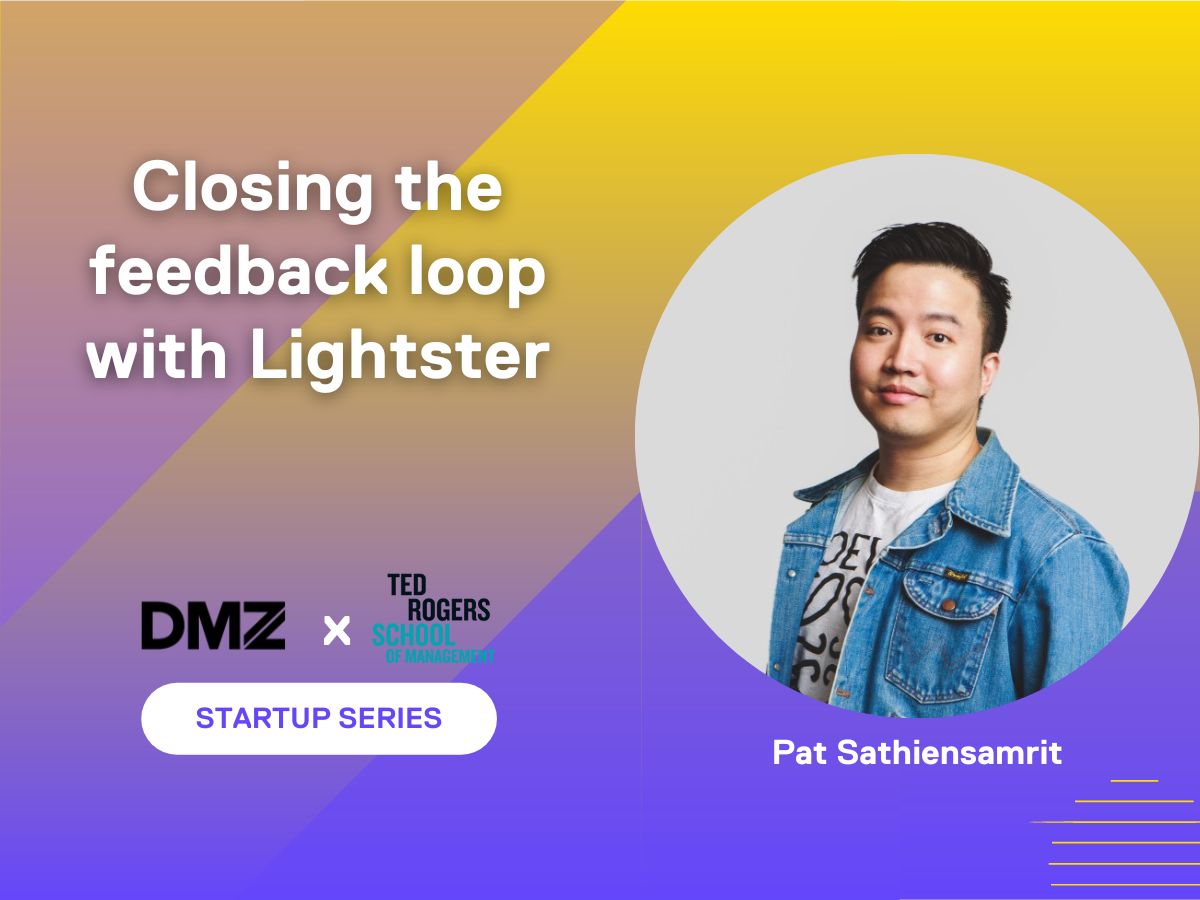Closing the feedback loop with Lightster

It’s not everyday you hear someone describe themselves as opportunistic, but Pativet Sathiensamrit owns the term.
“When I left my job at Peak Power,” says Sathiensamrit, “I was opportunistic because the timing was right. We were in the middle of the pandemic, and there were very visible market changes. People had started working remotely, and they were looking for ways to earn money on the side.”
The timing was right for a venture that helps other companies improve products while also supporting the rise of the side hustle. (external link) Enter Lightster (external link) —a mobile platform that lets consumer technology companies build user communities that give them relevant feedback to better their offerings, while supporting users looking to make money outside their day jobs.
“If you are a tech company looking to validate your idea, you want to get current feedback from your ideal customers. If I was creating a dating app, for example, I’d want feedback from people who are dating and use other apps,” explains Sathiensamrit. “Companies target user profiles as prospective customers.”
Although Lightster was founded in spring 2021, Sathiensamrit had the idea back in 2017 while pursuing his MBA at the Ted Rogers School of Management. “I wrote my Master’s paper on Lightster, choosing the business plan option for my thesis,” he says. “For nearly eight months, I was supervised by Dr. Ken Grant and Dr. Aziz Guergachi.”
Unlike business professionals who return to school for an MBA as a means to get promoted, Sathiensamrit chose to specialize in entrepreneurship to bridge the gap between his technology skills and his then-lack of business acumen. “I had Lightster on my mind, but I was trained in engineering and everything I did was related to user-friendly software,” adds Sathiensamrit. “I wanted to gain the confidence to build a company and gain awareness of other aspects of building a business, such as operations and finance.”
A part-time, two year MBA gave him the time to acquire seed money for his budding startup, as well as the chance to refine his business model. Sathiensamrit learned about the DMZ, one of the world’s leading startup incubators, from his time at Ted Rogers. “I applied a month after starting Lightster, but I didn’t get in right away because I was too early.”
On his second try, Lightster was accepted into the DMZ’s six-week Bootcamp, which helps early-stage founders validate their business idea and further develop a minimum viable product. While at Bootcamp, Sathiensamrit says Lightster experienced a 30% increase in customer use, giving him the momentum to be accepted into the 18-month Incubator program.
“The DMZ helps augment the skillsets I’m not as strong in, such as marketing, and they’ve helped us secure funding. There’s also the experience of being a part of a network of entrepreneurs,” he says. “It can be lonely when you start a business. Being at the DMZ, you meet people like yourself, and we help each other out.”
Part of Lightster’s burgeoning success is the simplicity behind it. Joining Lightster as a user is easy, just answer a few questions after downloading the app and companies start reaching out.
“As a user, all you have to do is wait for invitations from companies that target your profile as a prospective customer. The company will send you an invitation and you’ll hop on a call. Users are paid a dollar per minute after the call, and companies are able to understand what motivates customers, pain points, improvements and alternatives.”